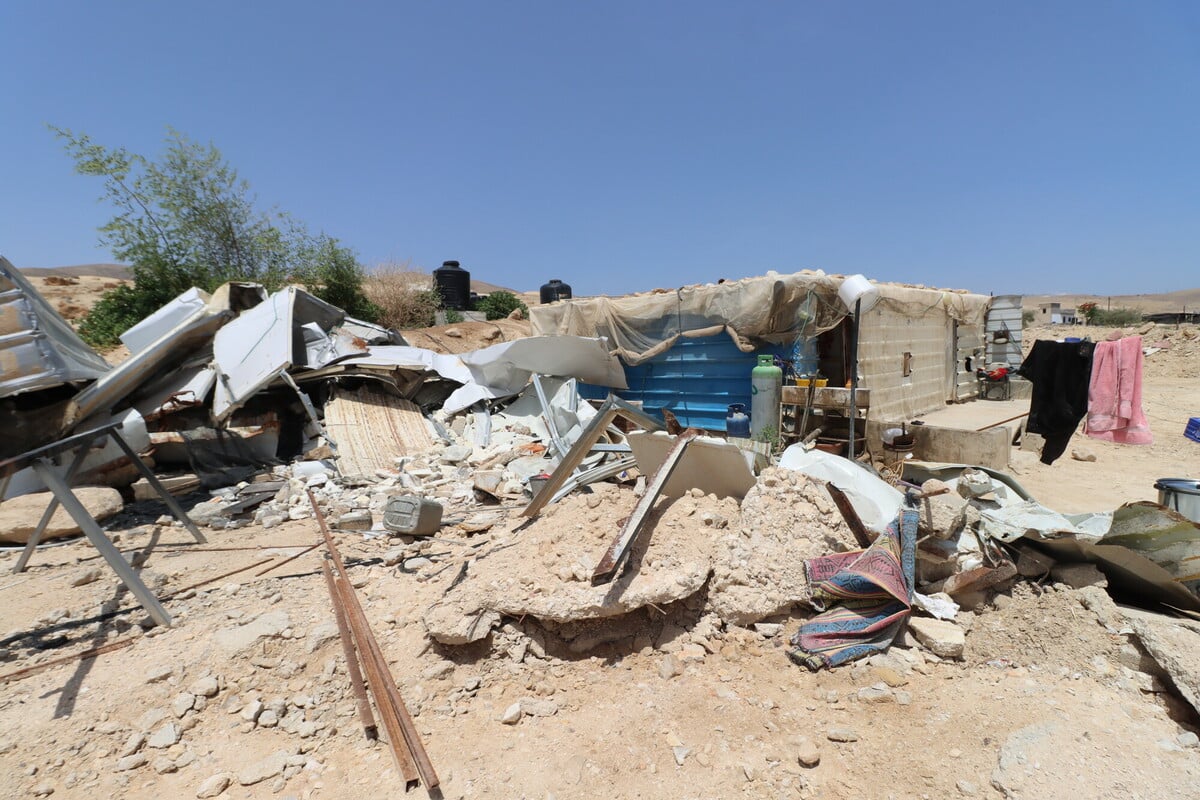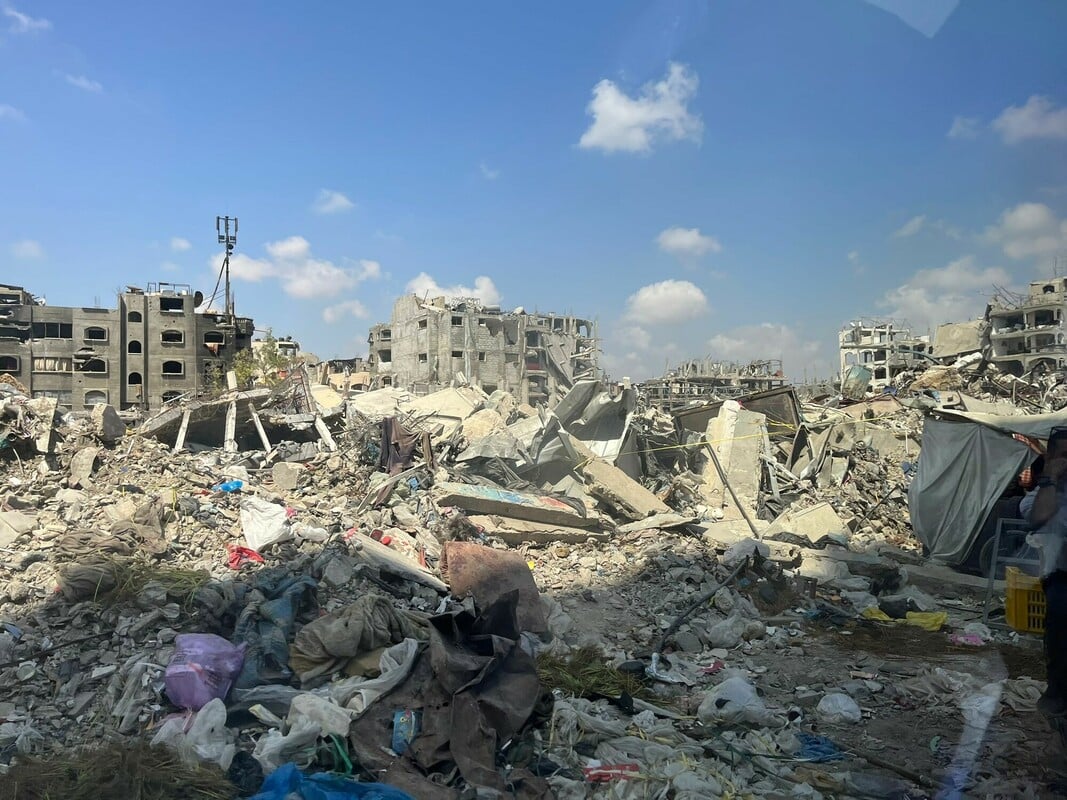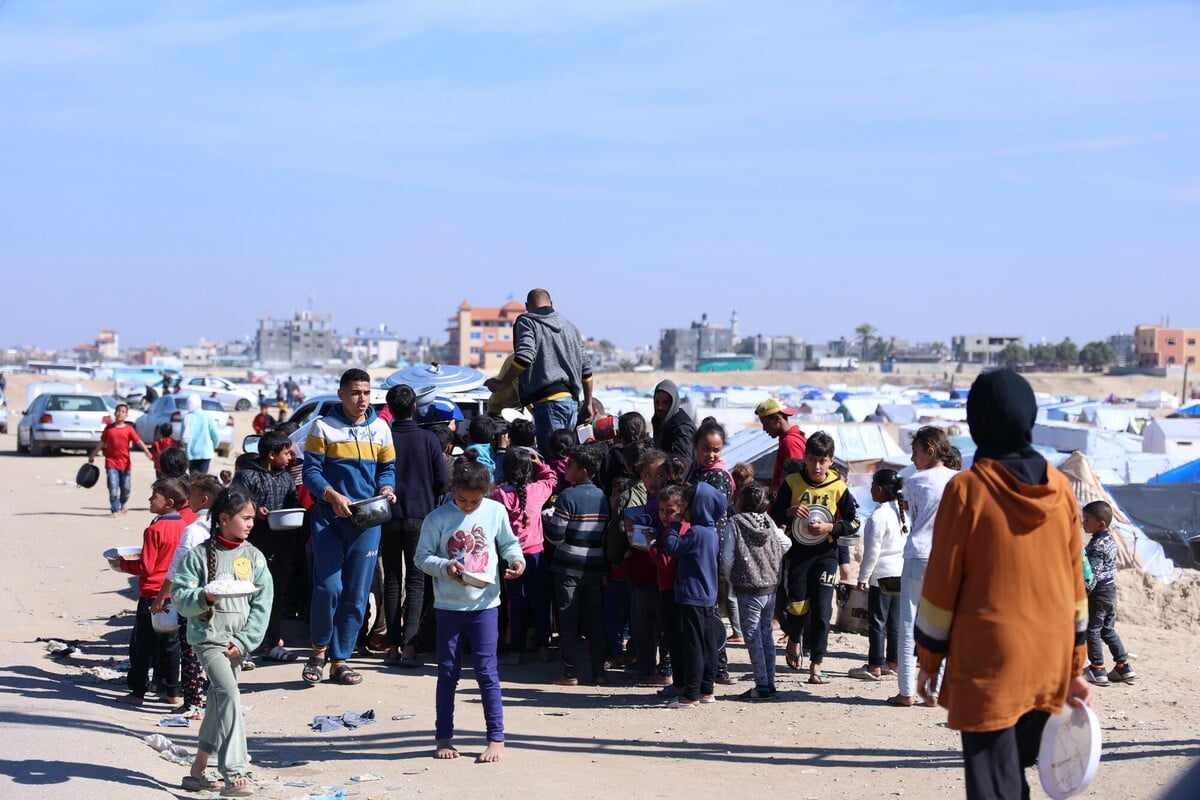This webpage provides access to a selected range of legal resources to support the protection of Palestinian rights throughout the region. It includes reports and guides authored by NRC, international expert legal opinions and links to other sources of information including those from UN agencies, international courts and other sources of expertise on Palestinian rights.
Go to Legal Resources in the West Bank →
Go to Legal Resources on East Jerusalem →
Go to Legal Resources in the Gaza Strip →
Go to Focus on Hebron →
Go to International Expert Legal Opinions →
Go to Other NRC Regional Legal Resources →
Go to International Legal Resources →
Palestinian displacement throughout the region
Palestinians remain one of the largest and longest displacement affected populations in the world today, comprising over 8 million Palestinians in the Middle East and North Africa region alone. This includes Palestinians in Egypt, Jordan, Lebanon, Palestine and Syria, as well as other Palestinian communities in the Gulf and North Africa.
Over 5 million Palestinians live in the State of Palestine, including over 3 million in the West Bank, including East Jerusalem, and another 2 million in the Gaza Strip. Another 3 million Palestinians have been displaced outside of Palestine. The United Nations Relief and Works Agency (UNRWA) provides services to over 6 million Palestine refugees throughout the region.
 Fasayel home demolition, West Bank. Photo: NRC
Fasayel home demolition, West Bank. Photo: NRC
Human rights protection for Palestinians, regardless of location
 In common with all peoples in the world, Palestinians have the right to protection of their basic rights under International Human Rights Law, regardless of their place of residence. Additionally, Palestinians in occupied Palestine are owed full protection under International Humanitarian Law. This includes the rights to protection against forcible transfer from their land, the protection of property rights, freedom of movement, work rights and the right to residency and family life.
In common with all peoples in the world, Palestinians have the right to protection of their basic rights under International Human Rights Law, regardless of their place of residence. Additionally, Palestinians in occupied Palestine are owed full protection under International Humanitarian Law. This includes the rights to protection against forcible transfer from their land, the protection of property rights, freedom of movement, work rights and the right to residency and family life.
Fundamentally, Palestinians are entitled to be protected from violence, arbitrary arrest, detention and discrimination. They have the right to self-determination, the right of return to Palestine, the right to an adequate standard of living, and the right to justice for violations committed against them, both present day and historical violations.
 Al-Nasser Street, Gaza City. Photo: NRC
Al-Nasser Street, Gaza City. Photo: NRC
In reality…within Palestine
Palestinians within the State of Palestine suffer massive rights violations on a daily basis, including the forcible transfer of entire communities, indiscriminate bombing, attacks and raids on communities, demolition and destruction of homes, schools and community infrastructure, violent and destructive attacks by settlers, measures of collective punishment, daily harassment and discrimination, denial of the right to residency in their own territory and other serious breaches of international law. Most significantly, Palestinians are denied the basic right of self-determination and the ability to live their own lives in freedom and dignity.
Since 7 October 2023, the war in Gaza has resulted in the deaths of over 40,000 Palestinians, including thousands of women and children, as well as a massive increase in home demolitions, and settler takeover of Palestinian land in the West Bank. The conflict highlights the importance of protecting Palestinian rights on all levels, including the prohibition on collective punishment of an entire population. International human rights and humanitarian law must be applied in an effective and non-selective way by all parties to the conflict.
Israel must be held to account for violations committed. Parties committing, or facilitating the commission, of breaches of the Geneva Convention, crimes against humanity, war crimes or acts of genocide, must be held fully responsible in accordance with international justice mechanisms. Third States are also responsible. As Parties to the Geneva Convention, they are required to adopt all measures necessary to ensure respect for the Conventions by other Parties to the Convention, including Israel.
In reality…within the region
In other contexts, throughout the Middle East, Palestinians continue to face rights violations, restrictions on their residency and movement, and limitations on access to documents and essential services, including health and education services. In some contexts, Palestinians are accorded adequate rights protection, whilst in other contexts access to rights is low.
Palestinians from Syria (PRS) without legal residency in Jordan and Lebanon are at risk of arrest and deportation, whilst Palestinians from Lebanon (PRL) continue to face limitations on their access to rights, despite their protracted residence in the country. Palestinians displaced to Egypt from the Gaza Strip face uncertain residency status with limited access to public services.
 Food distribution in Rafah, Gaza. Photo: NRC
Food distribution in Rafah, Gaza. Photo: NRC
Towards a just and lasting solution
As is the case for all conflict-affected and displaced populations, Palestinians are entitled to a just and lasting solution – one that protects them on a long-term and sustainable basis, that provides them with full access to their international human rights, including the right to self-determination and return, and that guarantees them peace and security in their daily lives. Palestinians are entitled to determine their own future, in accordance with international standards and available protections.
The gap between rights in theory and rights in practice for Palestinians is enormous and widening, especially in the West Bank and Gaza Strip. All international actors, including duty bearers, Third States and humanitarian actors, must take meaningful and effective actions to reduce the rights gap, beyond temporary and emergency measures, for the long-term protection and restoration of full rights for Palestinians and towards a just and lasting solution for all Palestinians.
International expert legal opinions:
Other International resources:
UN Special Rapporteurs:
UN Sub-Commission on the Promotion and Protection of Human Rights
Arab Land Initiative Resources on Palestine

